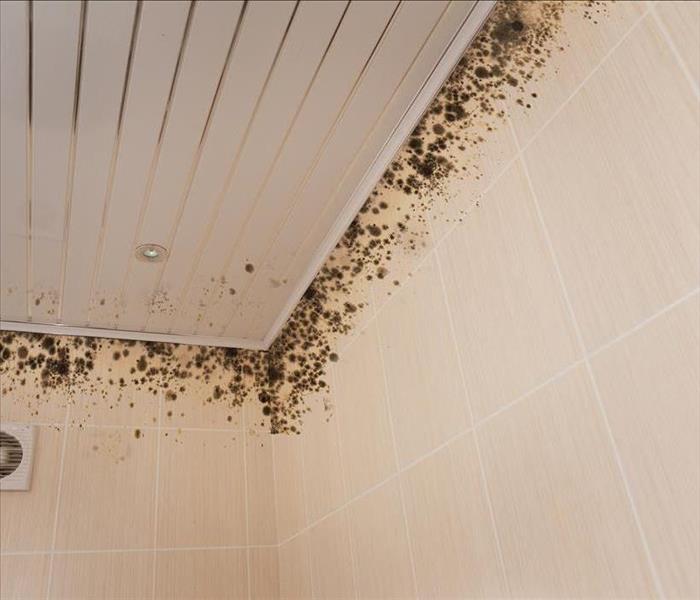Don't Wait To Mitigate
9/19/2021 (Permalink)
A home can flood for many reasons. Perhaps a weak spot in a pipe causes it to leak or burst. Maybe a toilet gets clogged and overflows. Excess rain can seep through cracks in the foundation and cause water damage in the basement. In every one of these instances, swift water mitigation is necessary for mold prevention. Mold occurs when stale air and organic matter and dampness combine to form the perfect environment for its growth. Robbing it of one of these elements significantly reduces the risk of it growing.
Busted Pipes
The tricky thing about having a busted pipe in your home in Woodstock, GA, is that the problem is likely hidden from plain view. If a pipe bursts behind a wall, it can cause a lot of damage before you ever know there's an issue:
• Soggy insulation
• Compromised drywall
• Ruined ceiling tiles (if the busted pipe is upstairs)
• Flooded light fixtures
Look for the signs of leaks that occur behind walls and between the different levels of the house. Mold prevention may still be possible if you call in the experts as soon as you see dark spots on the ceiling or feel weak or mushy spots in the walls.
Overflowed Toilet
If your toilet gets clogged, a single flush can bury your bathroom floor in an inch or two of water. This water wastes no time seeping into the floor. If you simply wipe up the water you can see with a towel, you may be missing all the water that is beneath the surface. Mold growth in the grout on your bathroom floors means the grout will have to be replaced.
Excess Rain
There's nothing you can do to prevent a lot of rain from falling, and there may not be much you can do to keep it out of your basement. If your basement does flood, call mitigation experts at once to keep mold at bay.
Mold prevention is more likely if you call technicians at the first sign of trouble. Don’t make a problem worse by dragging your feet.





 24/7 Emergency Service
24/7 Emergency Service
